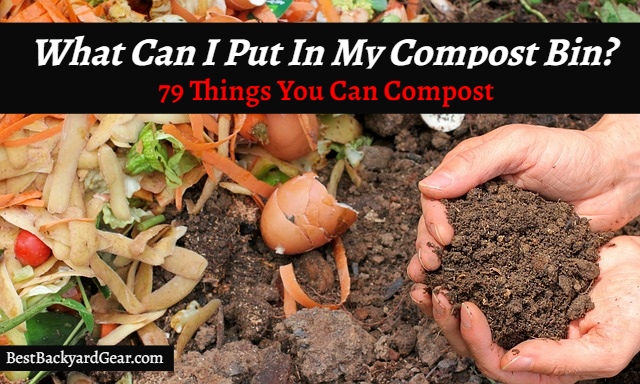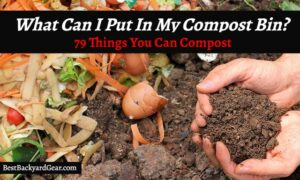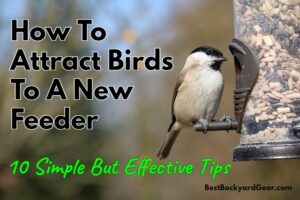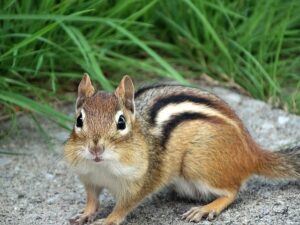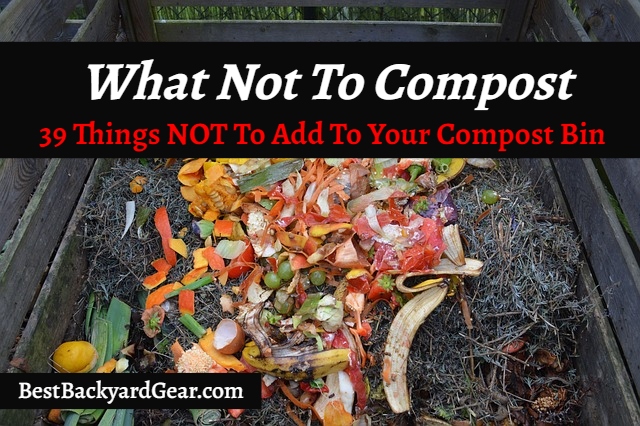
When you decide to start composting, it can be tricky at first to know what you can and can not add to your compost bin. You may find yourself googling specific times a fair bit, and that’s fine, but to save you time, below is a handy “what not to compost list” to help you out.
Compost is “just” a mix of scraps that decompose together, yes, but put the wrong things into that mix and you’ll be up for few nasty surprises:
- Some seriously bad odors, especially on a hot day!
- Rodents deciding that your property is where they want to settle and bring their families
- Diseases in your plants the following year that you didn’t expect and don’t appreciate
- Ugly lumps of not-yet-decomposed items popping up in your lovely garden soil.
- Unbalanced and unhealthy soil, even after you add what-looks-like good, fresh compost.
Knowing what you can and cannot add to your compost bin, is not as simple as “do I think it will rot?” Thankfully, there’s a lot of info out there. And overall, there aren’t too many things to keep track of. We can break them down into categories:
Animals | Animal Bi-Products | Human | Household | Plants | Outdoors | Kitchen
What Not To Compost: Animals
- Meat scrapes
- Animal bones
- Animal fat or grease
- Whole eggs (well crushed egg shells are fine)
- Dairy products
- Fish
These all decompose slowly, and have strong odors when they are rotting, and thus will attract rodents like bees to nectar. If you don’t want a smelly, messy, dug through compost bin, and if you want to keep the peace with your neighbors, don’t add these!
What Not To Compost: Animal Bi-Products or Carcasses
Animal biproducts and/or feces (including spent cat litter)
While feces and bedding from herbivorous creatures like chickens and hamsters can be composted, most others can not. Cat and dog feces are absolute “no’s”, as they can pass on parasites and pathogens.
Horse, cow, chicken and rabbit droppings are great additions however. If in doubt, ask yourself if you have ever heard of (insert animal name) manure being spread on fields or gardens. Chicken manure from your chicken coop? Yes. Dog manure? No. Proceed with “yes” answers, do NOT compost “no” answers.
However, if your compost bin is in an exceptional hot spot (165 degrees for 5 straight days), you “cure” the compost for 2 years minimum, and you only use the compost as fertilizer on lawns or flower gardens (not for growing anything edible), dog/cat feces can be composted. Lots of “IFs” though.
- Dead animals (including birds, mice, road kill)
Birds, mice, road kill… you don’t want to add these as they will be smelly as they rot (and attract rodents), and very likely contain parasites.
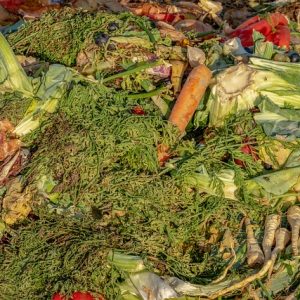
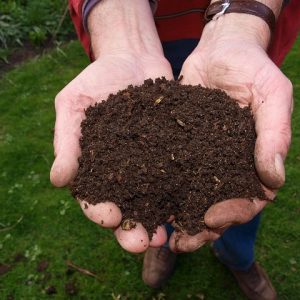
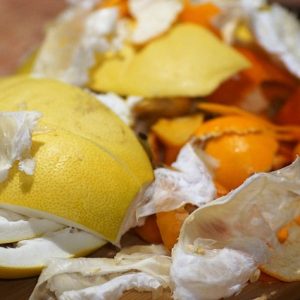
What Not To Compost: Human
- Soiled Diapers, even biodegradable ones
- Used feminine hygiene products
- Vomit
Human blood will smell up your compost bin horrifically. As will human feces.
There is a lot of plastic, pulp, and chemicals in both diapers and hygiene products that won’t break down properly.
As for vomit, it exited a body (human or animal) due to a virus or infection. You do not want that “bug” in the soil as well.
What Not To Compost: Household
- Vacuum cleaner contents
- Dryer lint
- Synthetic fibers
- Paper with sharpie ink or heavy printing
- Glossy or coated paper
- Wax paper
- Plastic or plastic coated items
- Styrofoam
Vacuum cleaner and dryer vent contents contain lint nd who knows what else! If you don’t want a tiny piece of lego or playmobil in your garden, or get surprised with tiny metal staples growing in your food, don’t compost vacuum cleaner contents.
Synthetic fibers, even 1%, will take YEARS to decompose.
Paper, uncoated, with no ink on it, can decompose fairly quickly and be safe for your soil. However, heavy ink such as sharpie marker ink can contain heavy metals and toxins. Glossy, matte coated, or wax paper will decompose very slowly too.
What Not To Compost: Plants
- Diseased or insect infected plants
- Weeds
- Plants that have pesticide
- Citrus fruit, tomatoes, pickled veggies
- Fruit pits
- Onions and garlic scraps
You really don’t want to spread into your compost whatever disease killed your favorite house plant, or those bugs that were mysteriously crawling all over your flower pot. Same goes for weeds. If you don’t mind them seeding in your compost and spreading in the organic manure you’re creating, then go ahead. Otherwise, avoid.
As far as pesticides go, remember, they will leech into the soil and be part of whatever plants you grow… and eat.
Citrus fruits, tomatoes, and pickled canned goods have very high acidity that isn’t great for soil.
Fruit pits take YEARS to break down!
Onions and garlic scraps may seem like great options for composting, as they are common cooking scraps, but unfortunately they actually will cause worms and other important microorganisms in your compost to die.
What Not To Compost: Outdoor Waste
- Black walnut tree leaves and twigs
- Large branches
- Synthetic fertilizer
- Wood fire ash in moderation only.
- Charcoal ash, coal fire ash.
- Cigarettes
- saw dust from treated wood
Black walnut tree roots and leaves release a substance called Juglone, which in basic terms, is a herbicide that badly affects tomatoes and potatoes in particular, but harms other plant growth as well.
Large branches will take years to decompose enough to be mixed into the soil.
What Not To Compost: Kitchen Waste
- Old baked goods
- Tea and coffee bags/pods
- Sticky labels from fruit and veggies
- Greasy wrappers or boxes
- Oily salad dressing
- Peanut butter
- Cooked grains or rice
If you yourself can appreciate the smell of baked goods, a raccoon or rat can as well – even old, dried out baking.
Tea and coffee itself is good for the compost bin – just NOT the pods or bags!
Sticky labels from the grocery store need to be trashed – they will not biodegrade in your bin.
Oily foods or wrappers, food scraps heavy in oils like peanut butter or salad dressings – these will not decompose, and the smells will attract vermin.
Cooked grains and rice will decompose quickly, but unfortunately they attract bacteria like nobody’s business (not great for garden soil). And often they have come into contact with meats or oils. That means smells… and rodents.

